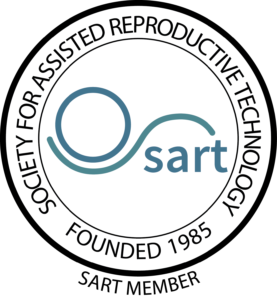Transgender fertility options help women and men become parents
Our Tennessee fertility clinic provides transgender fertility options that help many patients fulfill the dream of parenthood. The compassionate team at our clinic believes everyone who wants to build a family should have the opportunity to do so. We work closely with women and men to determine what tests and fertility treatments would be best for their unique needs so they can take the next step towards parenthood.
Fertility testing for transgender patients
One of the first steps in finding the right transgender fertility options for patients is having them undergo fertility testing. These tests can reveal important information about their fertility and which fertility treatments would give them the best chance of taking home a healthy baby.
Bloodwork. Blood tests let the doctor assess a transman’s ovarian reserve and hormone levels. For transwomen, testing provides information about reproductive hormones that affect sperm production and sexual function.
Transvaginal ultrasound. Our doctors often recommend an ultrasound for transmen, as this evaluation offers insight into the health of the ovaries and whether there are uterine abnormalities.
Semen analysis. A sperm test helps the doctor assess a transwoman’s sperm count, sperm motility and sperm morphology.
Preconception genetic testing. This testing can reveal inheritable genetic conditions and help patients decide whether they should consider preimplantation genetic testing.
We are able to support patients who are just beginning to transition or have already transitioned in determining the status of their fertility health.
After receiving results from these tests a doctor at our Tennessee fertility clinic can recommend transgender fertility options that often result in the birth of a healthy baby.
Effective transgender fertility options
There are a variety of fertility treatments our clinic provides for transgender patients. These treatments often allow us to accommodate the unique needs of all patients.
Intrauterine insemination, or IUI. For this treatment, a doctor uses a catheter to insert sperm from the patient’s partner or a donor, into their uterus. To prepare, the patient tracks their ovulation and comes to our clinic for the IUI the day after ovulation.
In vitro fertilization, or IVF. IVF involves the patient taking ovulation induction medications, while regularly receiving blood tests and ultrasounds at our clinic. When enough eggs mature, the doctor retrieves them during a short procedure. Next, an embryologist fertilizes the eggs with sperm from the patient’s partner or donor. The doctor then transfers a resulting embryo into the uterus of the patient or their gestational surrogate.
Gestational surrogacy. Surrogacy consists of the fertility doctor transferring an embryo into the surrogate’s uterus during a short procedure. The embryo is the result of an embryologist fertilizing an egg from a transman or an egg donor with sperm from the patient’s male or trans-female partner or a sperm donor.
Egg donation. Patients who do not have ovaries or a healthy ovarian reserve can use donor eggs.
Sperm donation. Patients that do not have testes or healthy sperm can utilize donor sperm.
The doctors at our Tennessee fertility clinic work closely with patients to help them determine which fertility treatments are right for them. Contact us for more information about our fertility treatments.






